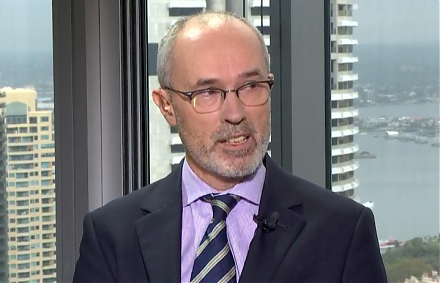

2018-08-19 10:34:00 Sun ET
stock market competition macrofinance stock return s&p 500 financial crisis financial deregulation bank oligarchy systemic risk asset market stabilization asset price fluctuations regulation capital financial stability dodd-frank
The World Economic Forum warns that artificial intelligence may destabilize the financial system. Artificial intelligence poses at least a trifecta of major risks to the financial ecosystem. First, inadequate user data validation and authentication may threaten consumer consent and privacy. The recent Facebook-driven Cambridge Analytica debacle causes major user privacy concerns and worries about the use and abuse of artificial intelligence applications in macrofinance and other financial services.
In August 2018, Google, Facebook, and Twitter have to remove numerous pages and posts to clean up their social networks due to Russian and Iranian inauthentic coordination for political purposes. Also, the Trump administration further blocks the potential acquisitions of U.S. electronic payment service providers by China's Ant Financial Group due to national economic security concerns. Tech platforms such as Facebook, Google, Apple, Amazon, and Microsoft should share the blame for egregious user privacy invasion and non-authentic user data access.
Second, technological advances in both cloud-computing power and algorithmic trade telecommunication help mold a highly non-linear and dense financial network. As an inadvertent consequence, one node of this network can cause exogenous shocks to propagate quickly and unpredictably to other parts of the global financial ecosystem.
As an inadvertent consequence, one node of this network can cause exogenous shocks to propagate quickly and unpredictably to other parts of the global financial ecosystem. Typical examples include the U.S. subprime mortgage crisis and the European sovereign debt crisis with severe socioeconomic malaise throughout the global economic recession from 2008 to 2012.
Third, artificial intelligence applications may induce online financial service users to engage in risky transactions that expose them to fraud or other cyber hazards. For instance, Bitcoin, Ethereum, Litecoin, and other cryptocurrencies exhibit highly volatile price fluctuations and hefty techy barriers to entry. Some of these crypto-currencies may involve esoteric investment projects in financial crime, collusion, or terrorist finance. In fact, several famous financial market experts such as Warren Buffett, Jamie Dimon, and Jim Cramer recommend stock investors to refrain from trading cryptocurrencies. Cryptocurrencies cannot be a valid authentic medium of exchange because only a few countries accept them as fiat money or legal tender. Neither can these cryptocurrencies serve as a reasonable store of value because the vast majority of them exhibit extreme price variation within a short time frame.
If any of our AYA Analytica financial health memos (FHM), blog posts, ebooks, newsletters, and notifications etc, or any other form of online content curation, involves potential copyright concerns, please feel free to contact us at service@ayafintech.network so that we can remove relevant content in response to any such request within a reasonable time frame.
2023-11-07 11:31:00 Tuesday ET

Joel Mokyr suggests that economic growth arises from a change in cultural beliefs toward technological progress. Joel Mokyr (2018) A culture
2019-09-01 10:31:00 Sunday ET

Most artificial intelligence applications cannot figure out the intricate nuances of natural language and facial recognition. These intricate nuances repres
2020-09-03 10:26:00 Thursday ET

Agile business firms beat the odds by building faster institutional reflexes to anticipate plausible economic scenarios. Christopher Worley, Thomas Willi
2019-08-05 13:30:00 Monday ET

China continues to sell U.S. Treasury bonds amid Sino-U.S. trade truce uncertainty. In mid-2019, China reduces its U.S. Treasury bond positions by $20.5 bil
2018-07-03 11:42:00 Tuesday ET

President Trump's current trade policies appear like the Reagan administration's protectionist trade policies back in the 1980s. In comparison to th
2016-11-08 00:00:00 Tuesday ET

Donald Trump defies the odds to become the new U.S. president. He wants to make America great again. He seeks to repeal Obamacare. He has zero tole